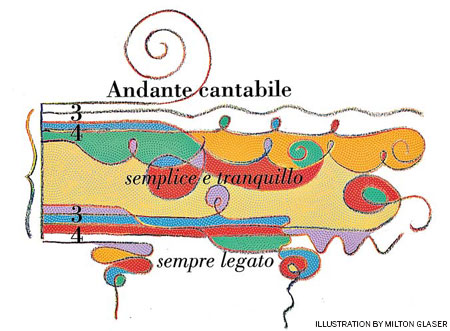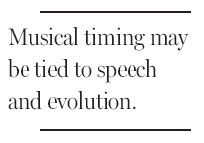Music, from the brain to the soul


Scientists are trying to understand what makes music expressive, and the results are contributing to a greater understanding of how the brain works and of the importance of music in human development, communication and cognition.
Research is showing, for example, that our brains understand music not only as emotional diversion, but also as a form of motion and activity. The same areas of the brain that activate when we swing a golf club or sign our name also engage when we hear expressive moments in music. Brain regions associated with empathy are activated, too, even for listeners who are not musicians. And what really communicates emotion may not be melody or rhythm, but moments when musicians make subtle changes to those musical patterns.
Daniel J. Levitin, director of the laboratory for music perception, cognition and expertise at McGill University in Montreal, began to explore musical expression in a rigorous, scientific way after hearing a live performance of a favorite Mozart piece.















